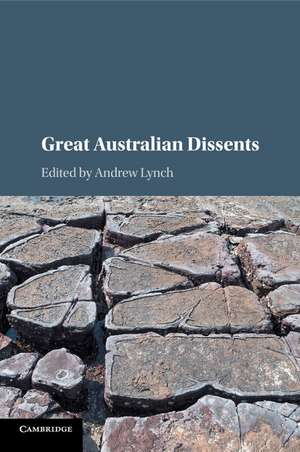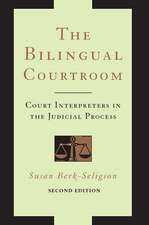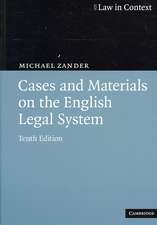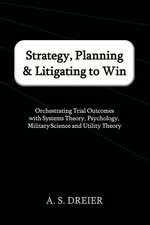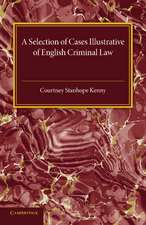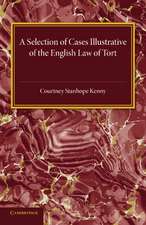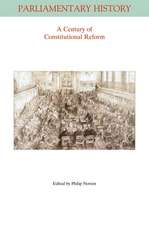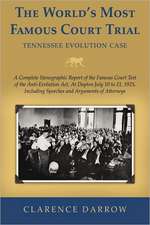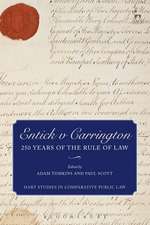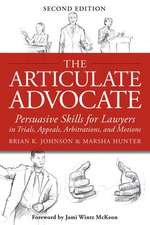Great Australian Dissents
Editat de Andrew Lynchen Limba Engleză Paperback – 13 iun 2018
| Toate formatele și edițiile | Preț | Express |
|---|---|---|
| Paperback (1) | 322.29 lei 43-57 zile | |
| Cambridge University Press – 13 iun 2018 | 322.29 lei 43-57 zile | |
| Hardback (1) | 678.33 lei 43-57 zile | |
| Cambridge University Press – 7 sep 2016 | 678.33 lei 43-57 zile |
Preț: 322.29 lei
Nou
Puncte Express: 483
Preț estimativ în valută:
61.67€ • 64.56$ • 51.03£
61.67€ • 64.56$ • 51.03£
Carte tipărită la comandă
Livrare economică 07-21 aprilie
Preluare comenzi: 021 569.72.76
Specificații
ISBN-13: 9781316611159
ISBN-10: 1316611159
Pagini: 392
Ilustrații: 1 b/w illus.
Dimensiuni: 152 x 229 x 20 mm
Greutate: 0.53 kg
Editura: Cambridge University Press
Colecția Cambridge University Press
Locul publicării:Cambridge, United Kingdom
ISBN-10: 1316611159
Pagini: 392
Ilustrații: 1 b/w illus.
Dimensiuni: 152 x 229 x 20 mm
Greutate: 0.53 kg
Editura: Cambridge University Press
Colecția Cambridge University Press
Locul publicării:Cambridge, United Kingdom
Cuprins
1. Introduction: what makes a dissent 'great'? Andrew Lynch; 2. Justice Barton and the demise of the Inter-State Commission in the 'Wheat Case' (1915) Oscar Roos; 3. Unrequited but still great: the dissent of Justices Dixon and Evatt in R v. Federal Court of Bankruptcy; Ex parte Lowenstein (1938) Andrew Lynch; 4. Justice Evatt and the lost child in Chester v. Waverley Corporation (1939) Barbara McDonald; 5. Uther's Case (1947): Justice Dixon and the troubled legacy of the Commonwealth Immunity Doctrine Stephen McDonald and Anne Carter; 6. 'Lone, vehement and incredulous': Chief Justice Latham in the Communist Party case (1951) George Williams; 7. Public Prosecutor v. Oie Hee Koi (1968): not so humbly advising? Sir Garfield Barwick and the introduction of dissenting reasons to the Judicial Committee of the Privy Council Oliver Jones; 8. The trouble with duress: the dissent of Chief Justice Bray in R v. Brown and Morley (1968) Joe McIntyre; 9. The 'intelligence of a future day': the vindication of Justice Stephen's dissent in Henry v. Boehm (1973) Michael Coper; 10. Justice Mason in the Australian Assistance Plan case (1975): nationhood, Federalism and Commonwealth executive power Peta Stephenson; 11. Justice Murphy's dissent in Australian Conservation v. Commonwealth (1980): the birth of public interest standing in Australia? Matthew Groves; 12. The essence of a fiduciary relationship: Justice Mason's dissent in Hospital Products Ltd v. United States Surgical Corporation (1984) Simone Degeling and Greg Weeks; 13. The Chamberlain dissents (1984) Jeremy Gans; 14. Treachery or heroism? The judgment of Justices Deane and Toohey in Leeth v. Commonwealth (1992) Amelia Simpson; 15. Justice Dawson's steadfast defence of the 'very essence of political discussion' in Langer v. Commonwealth (1996) Adrienne Stone and Kristen Walker, QC; 16. Certainty, co-existence and the legacy of Mabo: Justice North in the Miriuwung Gajerrong native title case (2000) Sean Brennan; 17. When liberty divides: judicial cleavages and their consequences in Al-Kateb v. Godwin (2004) A. J. Brown; 18. He who would not be muzzled: Justice Heydon's last dissent in Monis v. The Queen (2013) Gabrielle Appleby and Heather Roberts.
Descriere
This book identifies, analyses and celebrates the significant and influential dissenting judicial opinions in Australian legal history.
